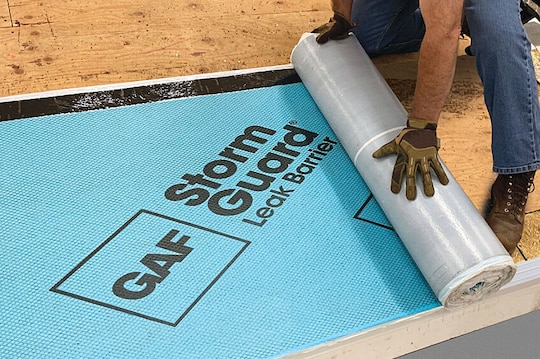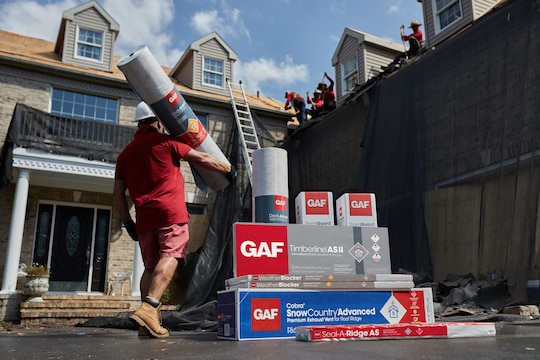
If you've been putting off your roof repair or replacement because you're not ready for a big upfront expense, you may want to consider a payment plan. Many homeowners use the power of financing to pay in manageable installments over time rather than all at once.
Home improvement loans can extend your budget and offer peace of mind that you are making the best investment in the value and protection of your home. With more spending power, you can hire an experienced contractor, select more premium products, and choose a more expansive warranty.
The process works the same way as for any other large purchase, such as a car, furniture, or an HVAC system, and it makes getting a new roof much more attainable. If you have an insurance claim, financing may help you cover your deductible. You may also be able to use a payment plan to cover the balance of your roof project if insurance only pays for a portion of the repair or replacement.
Talk to Your Contractor
As you shop for a roofing contractor and request estimates, ask about financing options. Even if you are thinking about paying cash, you may want to consider payment plans that can ease the anxiety of writing a big check.
Once you have roofing bids in hand and have selected your roofing contractor, you'll have a good idea how much your roof project will cost. Most established contractors can talk to you about payment options, and then you can choose the one that best suits your needs.
The process is easy and quick, and many applications can be done virtually by receiving a direct link via text to your smart device or clicking on an "apply for financing" button on your roofer's website. You will be required to provide the standard information typically needed for any loan, including your gross or net income, any assets or other forms of revenue you have, your credit history, and your credit score.
Choose Your Payment Schedule
There are different payment schedules you can choose from, depending on what works best for you.
Some roofing contractors will ask you for a deposit before work can begin. Others might suggest a mix of an upfront payment followed by monthly payments for a specified time.
Be sure to refer to the lending disclosures from your lender on financing details, such as when your first payment is due.
As mentioned above, even if you have budgeted for a new roof and have the capital saved up, you may still want to use roof financing to spread out your payments instead of paying a lump sum. This option gives you the flexibility to use your cash for anything you want—such as another large purchase, a vacation, or other investments—rather than spending much of it all at once.
Understand Your Obligations
Although every financing company has its own processes, it's important to contact your financing company with questions and read the loan documentation carefully.
Lenders typically have different options for the length of the loan, from short-term agreements that run for 6 to 12 months, to some that are longer such as 72 or 96 months, with a range of interest rates to accommodate different financial needs.
You'll want to read the agreement carefully to ensure you understand details such as when payments will be due, what the down payment will be, whether there are additional fees, and how long you have to repay.
Finally, be sure to carefully review the terms of breach or default on your agreement if you don't make payments on time. You can consult with your contractor if you have any questions about the details of your financing contract.
Take a moment to find a GAF-factory certified roofing contractor* in your area, and be sure to inquire about payment options that can help you invest in your home and get your roof project done smoothly, effectively, and with less financial stress.
For informational purposes only and not for the purpose of providing financial, legal, insurance or tax advice. GAF does not provide financing, and any loan or other financing programs promoted by GAF are provided to the homeowner or consumer directly by licensed and regulated third party financial organizations unaffiliated with GAF. Financing is subject to availability, lender approval, credit requirements and terms and conditions.
*Contractors enrolled in GAF certification programs are not employees or agents of GAF, and GAF does not control or otherwise supervise these independent businesses. Contractors may receive benefits, such as loyalty rewards points and discounts on marketing tools from GAF for participating in the program and offering GAF enhanced warranties, which require the use of a minimum amount of GAF products.



